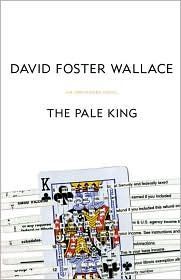
The Pale King
The agents at the IRS Regional Examination Center in Peoria, Illinois, appear ordinary enough to newly arrived trainee David Foster Wallace. But as he immerses himself in a routine so tedious and repetitive that new employees receive boredom-survival training, he learns of the extraordinary variety of personalities drawn to this strange calling. And he has arrived at a moment when forces within the IRS are plotting to eliminate even what little humanity and dignity the work still has. The Pale King remained unfinished at the time of David Foster Wallace's death, but it is a deeply compelling and satisfying novel, hilarious and fearless and as original as anything Wallace ever undertook. It grapples directly with ultimate questions--questions of life's meaning and of the value of work and society--through characters imagined with the interior force and generosity that were Wallace's unique gifts. Along the way it suggests a new idea of heroism and commands infinite respect for one of the most daring writers of our time.
Reviews
Gavin@gl
Fraser Simons@frasersimons
Melanie Richards@melanierichards
Rachel@wellreadcatlady
Juan Sacco@catsup_plate
Brian Gillis@gillicuddy
Karolina Klermon-Williams@ofloveandart
lucinda ventimiglia@lucinda
Brock@brock
Will Vunderink@willvunderink
Maurice FitzGerald@soraxtm
Hannah Swithinbank@hannahswiv
Brian Duffy@bigpoppa
kate@katelucia
Mykyta Barabanov@mukuta
Nadav Spiegelman@nadavspi
Mykyta Barabanov@mukut
Nicholas Christowitz@wideopenspace
Kaleb McClellan@kaleb
Cindy Lieberman@chicindy
Alex Gee@alexgee
Gabriel Jönsson@gabrieljonsson
Cem Pekdogru@pekdogru
Stephen Schenkenberg@schenkenberg